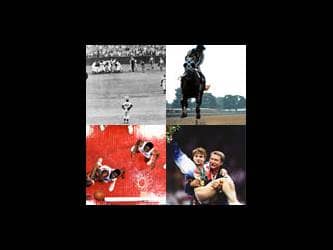
For our list of the Top 10 Sports Miracles, we focused on the improbable. We selected 10 events deemed impossible the moment just before they happened.
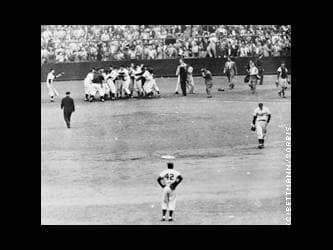
Bobby Thompson's Shot Heard Round the World
Poets and novelists have long been inspired by baseball, so it is fitting that baseball fans should borrow from a Ralph Waldo Emerson poem to honor one incredible moment. In 1951, the New York Giants needed a miracle to secure the pennant against their cross-town rival, the Brooklyn Dodgers, who stormed back into contention late in the season. In the bottom of the ninth inning of a tie game, Bobby Thompson stepped to the plate with two men on base. Two pitches later, Thompson hit a high fastball just far enough to clear the fence in left field. He jumped wildly around the bases, his shot ringing through all five boroughs and beyond.
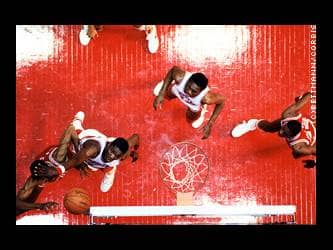
NC State Beats the Buzzer
In 1983, the Houston Cougars were a powerhouse basketball team. Their two best players, Hakeem Olajuwon and Clyde Drexler, would go on to star in the NBA, so their dominance at the college level was but a prelude to greatness. But NCAA's March Madness is so called for a reason. In the final game of the championship, the Cougars let lowly North Carolina State stay close for too long. The score was 52-52 as time expired. North Carolina State's Derek Wittenburg launched a desperation shot that missed the basket…and fell into the waiting hands of Lorenzo Charles, who dunked the ball, secured a miraculous championship, and inspired coach Jim Valvano to race around the court in glee.
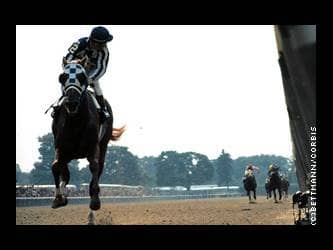
Secretariat: The Miracle Horse
Sometimes dominance is miraculous. On June 9, 1973 at Belmont Park, the red chestnut colt Secretariat accomplished the unthinkable by winning horse racing's Triple Crown. In the Kentucky Derby, the horse had run each quarter mile faster than the one before. Now, in the Belmont Stakes, Secretariat pulled away from the field with breathtaking strides. "He is moving like a tremendous machine!" shouted race caller Chic Anderson. Secretariat crossed the wire 31 lengths in front of the next horse and shaved four full seconds off the previous record. "Secretariat's Belmont challenged credulity," wrote Ken Hollingsworth. "He ran so far beyond known reference points, he left us with no measurable comparison."

Kerri Strug Vaults to Gold
The 1996 U.S. Olympic women's gymnast team was not exactly an underdog--the seven women were talented, powerful athletes. But the United States had never beat the Russians in gymnastics. The teams battled evenly throughout the event. On the last routine of the last day of competition, Kerri Strug approached the vault. She fell on her first attempt, badly hurting her ankle. Limping back to the start of the vault, Strug steeled herself and attacked the vault a second time, landing perfectly on one foot. The images of her miracle finish, including coach Bela Karolyi carrying Strug onto the podium to claim her medal, would secure Strug's place in the pantheon of American sports greats.
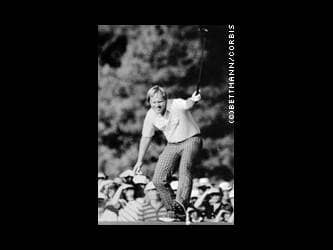
Jack Nicklaus Masters the Masters
He was the Golden Bear approaching winter. At 46 years old, Jack Nicklaus was perhaps the greatest golfer in the game's history . . . but an afterthought at the 1986 Masters. He hadn't won a major tournament in six years and had won only a handful in the previous eight. One major newspaper declared him "done, washed up, through." Then came the last nine holes late on Sunday afternoon at Augusta: birdie, birdie, one bogey mistake, birdie, par, eagle, birdie, birdie, par. Sportswriters left their tents to join everyone else vying for a glimpse at a miracle. The Bear's rivals stumbled. He shot a 30 on the back nine at Augusta, and 65 for the day. In one impossible afternoon, Nicklaus proved age was relative and anything was possible.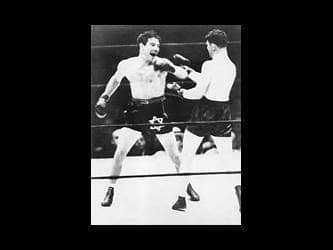
Cinderella Man
While "Cinderella Man," the movie, demonized boxing champ Max Baer and sentimentalized the Great Depression, the Cinderella Man himself does not need any embellishment. James Braddock's early successes as a boxer earned him a shot at the heavyweight title in 1929. But Braddock lost the bout, which was the first of many losses in and out of the ring: as The Depression set in, Braddock suffered a series of poor boxing performances and soon was fighting just to feed his family. In 1934, an all-but-defeated Braddock scored a couple upset victories and was given a chance to fight Baer, the heavyweight champion of the world. Baer was supposed to score an easy win, and at times it looked like he would--but the Cinderella Man refused to back down. Against all odds, Braddock simply out-boxed Baer, and won a 15-round unanimous decision.
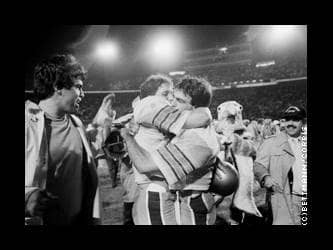
Doug Flutie's Hail Mary
Doug Flutie did not invent the Hail Mary Pass--credit for that goes to Roger Staubach, who threw a last-second touchdown pass in a 1975 playoff game and later claimed he said a Hail Mary while tossing the ball. But nine years later, Flutie threw the most famous Hail Mary of them all. Down 45-41 to the Miami Hurricanes, Flutie and his Boston College teammates took the field with 28 seconds remaining. Two plays and thirty yards later, Flutie scrambled and tossed a high, end-zone-bound pass as time expired. Gerard Phelan caught the ball, but Doug Flutie caught all the glory in one of the most memorable moments of college sports history.
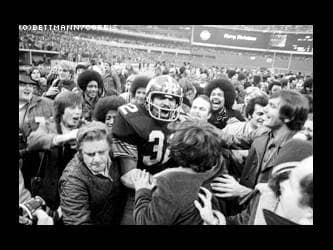
The Immaculate Reception
It is hard to remember now, but before the Immaculate Reception in 1972, the Pittsburgh Steelers were football's loveable losers. "Futility" is too kind a word to describe season after season of Steelers football. Then, with seconds to go in a playoff game against the Oakland Raiders, Steelers quarterback Terry Bradshaw threw a desperation pass down the middle of the field that tipped off another player and headed toward the ground. Out of nowhere came rookie running back Franco Harris, who scooped it up and ran for the game-winning touchdown. Though the team lost the next week, the Steelers would go on to win four Super Bowls in the next six years.
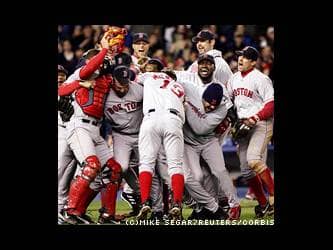
Red Sox Reverse the Curse
Baseball's favorite myth met with history when the Boston Red Sox won the World Series in 2004, something they had not done in the previous 86 years. Not only did the team reverse the "Curse of the Bambino"--a superstition that in 1920 Babe Ruth cursed the club for trading him to the New York Yankees--but they did so in miraculous fashion. Down three games to none against the Yankees in the American League Championship Series, and down 4-3 in the bottom of the 9th inning in Game 4 against the Yankees' best pitcher, the Red Sox climbed back into the series with a walk, a stolen base, an RBI single, and a walk-off homerun. They would go on to win the next three games, then sweep the St. Louis Cardinals in the World Series.
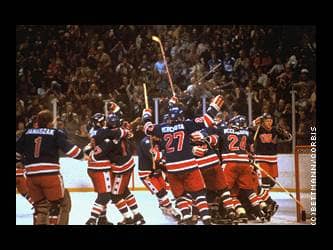
The Miracle on Ice
At the height of the Cold War, some American college kids, a handful of amateurs, and a second-tier coach won the gold medal in the 1980 Lake Placid Olympics by defeating a Soviet team long believed to be the greatest hockey power in Olympic history. We've watched the game footage. We've thrilled to the Disney movie. We've heard the famous call of the game's final seconds: "Do you believe in miracles?" Still, this miraculous moment amazes like none other.



Tidak ada komentar:
Posting Komentar